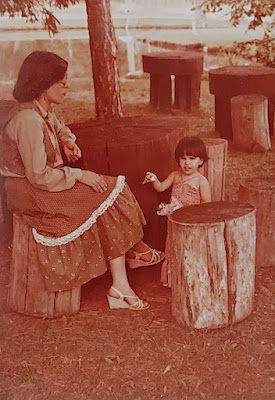Preview of a non-fiction piece I have been asked to write for a literary journal
A veces te sientes como si anduvieras en el hoyo negro de algún universo recién descubierto, meciéndote en la nada, esperando que un día vengan por ti.
Yolanda Arroyo Pizarro, Epidemiología
I just got home from a workshop given by the award winning Puerto Rican writer Yolanda Arroyo Pizarro. She was great, more like fabulous, yes, fabulous is the word I am looking for. She did what I expected a good experienced writer would do, which was; turn me on to a few “new to me” Puerto Rican writers and put me to work. She read two of her own poems, after which I mumbled: “que fuerte,” because her poems were in that right in your face persona I love to assume myself. She read from a couple of short stories written by contemporary Puerto Rican writers that were amazing, and we went right into writing a poem. In this case it was a queer poem because this is all part of “La Tercera Jornada Contra la Homofobía.” I breathed a good measure of relief because that image of the Puerto Rican criminal-slash-whore was nowhere to be found in any of those pieces. I didn’t see it in the faces of any the other participants of the workshop, I didn’t hear it coming out of any their verses. “Nada,” it ceased to exist, and I was at its funeral right there in Librería Mágica. But then, why is it our diaspora still writes, to critical acclaim, about this claustrophobic colonial image? An image that denigrates me as a Puerto Rican that grew up between Chicago and San Juan, and spent most of his adult life in El Paso, Tx. Me, a Puerto Rican writer living on the island that chose the English language as his work tool.
We were never poor, we were always middle-class. My mother was a teacher, my stepfather was a lawyer. My mother’s father, my grandfather, was also a teacher, and my grandmother administered a hospital. Our closest friends in Chicago were middle-class educated Puerto Ricans, some, I recall as being upper middle-class Jews, and if my memory does not fail me, there were a few Iranians and Hindus. We moved into black neighborhoods adjacent to white neighborhoods, those middle zones currently known as “integrated neighborhoods.” The only time we ever went into the Puerto Rican section was on Sunday’s when my stepfather stood on a podium and gave a sermon, he was also a Methodist preacher, and I could smell the sea breeze coming from the island and play with kids of the same color as me. On Sunday’s all I ever saw were immaculately dressed beautiful women giving their children that ugly “behave or I’ll whip you when we get home” stare, and men that resembled Albizu in the prime of his youth. The junkies, the whores were all missing in my little head and so reading about them got kind of old after a while. And I wonder how much of it was true and how much of it was that early 19th century “costumbrista” style of writing so romanticized in the artistic endeavors of our diaspora. You know, that image that sells, the American dream, from rags to riches. And it’s not that I am trying to be disrespectful, it’s that I am no longer comfortable not questioning this image because in the case of Puerto Ricans it almost always means you are now an academic. A species that from what I’ve seen in "prominent" journals, almost always tends to self promote and exclude. It is not really a matter of good or bad poetry, it’s how many collections you’ve published, who you know in Academia, and where you are currently teaching.
I wonder about that and about the invisibility of the gay homosexual male in our diaspora’s experience. I don’t buy that “I didn’t have any gay friends or relatives in El Barrio” when I was growing up, just like I don’t buy that “there were no gays or lesbians” supporting El Che’s revolution in Latin America. You see I also migrated to South and Central America in search of my Hispanic identity and I know what everyone knows in South, Central, and North America: queer writers and revolutionaries are everywhere! They’ve always been everywhere, El Barrio can’t possibly be the exception.
It’s bad enough a poet can no longer make a living out of his trade, for those of us who are not academics, it is a constant struggle to get some kind of recognition, someone that will promote our voices. We don’t have access to the university presses, or to people like Mayra Santos-Febres, our diaspora academic idols have and, we don’t own our own publishing companies from where we can self promote with some measure of ease using phrases like “the Pablo Neruda of America.” We are on the island and everyone knows we are writing from here, not because we get any recognition from the writers we worship, but because we are as persistent as hungry mosquitoes. We know how little time there is to make it, or break in this business of writing. I want my nephews in Philadelphia, 4th generation diaspora, my chicano cousins in El Paso, to know there are writers like myself that still exist and that we are queer, me their “Tío Sergio.”
To be continued...


Comments
Post a Comment